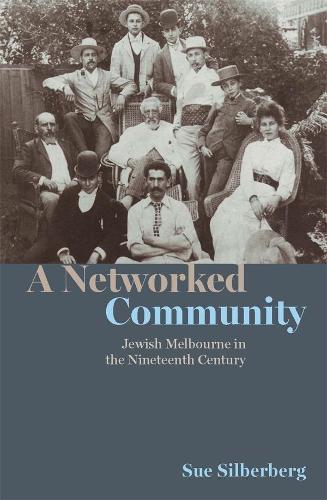
A Networked Community: Jewish Melbourne in the Nineteenth Century
(Hardback)
Available Formats
Publishing Details
A Networked Community: Jewish Melbourne in the Nineteenth Century
By (Author) Sue Silberberg
Melbourne University Press
Melbourne University Press
28th April 2020
Australia
Classifications
General
Non Fiction
994.5102
Physical Properties
Hardback
256
Width 159mm, Height 242mm, Spine 24mm
484g
Description
In 1835 a renegade group of Tasmanians wishing to expand their landholdings disembarked in what was to become Melbourne. This colonising expedition was funded by a group of investors including the Jewish emancipist Joseph Solomon. Thus, in Melbourne, as in the settlement of the continent itself, Jews were at the foundation of colonisation. Unlike many other settlers, these Jews predominantly came from urban backgrounds. Although principally from London, some of them had experienced other forms of Jewish urbanismin central and eastern Europe, the Ottoman Empire and the Caribbeanand applied their experience to the formation of a new emancipated conceptualisation of urban Judaism. In Victoria, as in the other new Australian colonies, there were no civil or political restrictions on the Jewish community. With the establishment of Melbourne, Jewish settlers were required to create new communal frameworks and the religious bodies of an active Jewish life. The community's structure and the institutions they founded were a pragmatic response to the necessities of communal formation and the realities of maintaining Judaism within this colonial outpost. As with other Jewish communities in the large centres of the world, they responded to the freedoms of an emancipated society, while the political and social environment of a new city such as Melbourne provided a unique set of opportunities. Unlike in other cities where Jewish property ownership was restricted, here Jews could live and work where they chose, becoming, from the first land sales, investors in property. Subsequently as the city expanded, as developers and builders they influenced the formation of the urban fabric, while their intellectual and economic connections brought new political and intellectual ideas and networks to the colonial experience.
Author Bio
Sue Silberberg is a historian, curator and arts administrator. She was educated at the University of Melbourne, Monash University, Deakin University and the International Centre for the Conservation of Cultural Material (ICCROM). She holds a doctorate in Australian Jewish History from the University of Melbourne, where she has been a research fellow at the eScholarship Research Centre. Previously Silberberg was a museum curator and director in London and Victoria, specialising in historic buildings. She held senior government positions within the arts and was the director of the Cultural Festival for the 2006 Melbourne Commonwealth Games.
